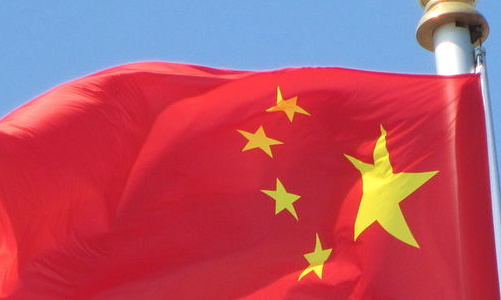China’s plummeting stock market and weak yuan are proving enough to convince investors in the country to avoid the nation’s faltering economy and instead opt for safer and more lucrative opportunities elsewhere – particularly in real estate and especially in Miami. But with the recent announcement that multinational bank HSBC Holdings will be limiting its mortgage offering to “some” Chinese nationals purchasing in the U.S., some in the industry are wondering what impact this will have on Miami’s market, where Chinese investors have become a significant force.
In its immediate statements, HSBC has been vague on the details surrounding the policy, but the initial report from luxury-home-search website Mansion Global claimed the policy would affect Chinese nationals who held temporary ‘B’ visas and maintained the majority of their income and assets in China.
Jeremy Balkin, spokesman for HSBC, clarified in a statement to Miami Agent magazine that the impact of its policy will not extend beyond a very small portion of its Chinese business.
“The vast majority of HSBC’s Chinese customers will not be impacted by this change in policy,” he said, adding that the bank “continues to support them around the world.”
Balkin went on to confirm that regardless of what speculation may be circulating the Web, the bank remains well within regulatory compliance.
“HSBC fully complies with all applicable regulations in the markets in which it operates and constantly reviews its policies to protect its customers and support the orderly and transparent operation of financial markets,” Balkin said.
Chinese Buyers are a Big Deal
HSBC’s actions, as Balkin suggested, are likely to be relatively benign in terms of impacting the number of Chinese buyers coming into the U.S. Concerned Miami agents who represent foreign and cash buyers (of which there are many) may be wondering whether this bank’s decision to limit mortgage offerings to any Chinese buyers, regardless of how few, might signal a shift in how willing banks are to finance international purchases originating in China – which could have significant implications for Miami’s market. The answer: maybe.
“More than half of Chinese citizens are now considering buying foreign real estate, especially in the United States,” said Carmen Chong, national chairwoman of the Asian Real Estate Association of America. “Chinese are desperately looking for partners who can introduce foreign investment products to them.”
According to the National Association of Realtors, in 2015, foreign buyers accounted for approximately $104 billion in real estate transactions. Chinese buyers made up more than a quarter of that with over $28 billion in purchases. Those are enticing numbers for both lenders and agents, which begs the question: why would any bank decide to limit lending to Chinese spenders at all?
The true answer is probably layered and considers a conservative approach, weighing risk and regulations. HSBC’s decision comes on the tails China’s recent suspension of Standard Chartered and DBS Group Holdings from conducting some foreign exchange business in the country.
It’s part of a bigger, longer-term plan by the Chinese government to limit capital outflow, which has only become more rampant in the wake of this most recent market turmoil. The drain of native capital is undermining the government’s effort to curb its current downturn – efforts that have included the country devaluing its own currency, which Chong said might actually be further encouraging its citizens to leave the local market.
“I don’t believe devaluing the yuan will stop Chinese buyers from moving their money into American properties,” she said. “In fact, I believe it will continue to increase.”
And that has certainly been the case in the Magic City.
A Potential Loss for Miami
In Nov. 2015, a NAR survey of international buyers discovered the top Florida destination for Chinese spenders was Miami, with more than 42 percent purchasing property in the city.
In a statement accompanying the report, Miami Association of Realtors Chairman John Dohm said flatly that buyers from China “want to own a piece of Miami and Fort Lauderdale real estate.”
But as much as Chinese nationals may want to sink their holdings into Miami property, HSBC’s move is only the latest move in a series of policy changes that could have wider implications for foreign investors and all-cash buyers looking to enter Miami’s market.
In January, the Treasury Department’s Financial Crimes Enforcement Network announced new rules for monitoring certain all-cash real estate transactions in Miami-Dade County and Manhattan.
“We are seeking to understand the risk that corrupt foreign officials, or transnational criminals, may be using premium U.S. real estate to secretly invest millions in dirty money,” said FinCEN Director Jennifer Shasky Calvery.
The new rules are aimed at suppressing money laundering – which Miami’s real estate market has unwittingly been a party to in the past – but could inadvertently dissuade legitimate Chinese investors who prefer purchasing in all cash.
From 2005 to 2015, Mandarin Chinese-speaking buyers completing all-cash real estate purchases increased by 229 percent, according to RealtyTrac. Miami cash sales escalated along similar lines, accounting for approximately 15 percent of total sales in Sept. 2005 compared to over 50 percent in Sept. 2015. The fact that those two figures have risen in tandem is not surprising. Foreign buyers comprise a large portion of Miami’s demand, and by and large those buyers prefer cash. And because foreign cash plays such a significant role in Miami’s market, local agents relying on international and all-cash clients will need to watch these developments closely.
Of course, agents shouldn’t expect HSBC’s actions to immediately interrupt the flow of Chinese capital into Miami’s real estate market – too many are working to get their money out of the country. But in the immediate term, with the bank’s slight limit on mortgages, China’s efforts to throttle outflow and the Treasury Department increasing scrutiny on $1 million-plus cash sales, the Magic City could see a momentary dip in foreign purchases coming from China.

